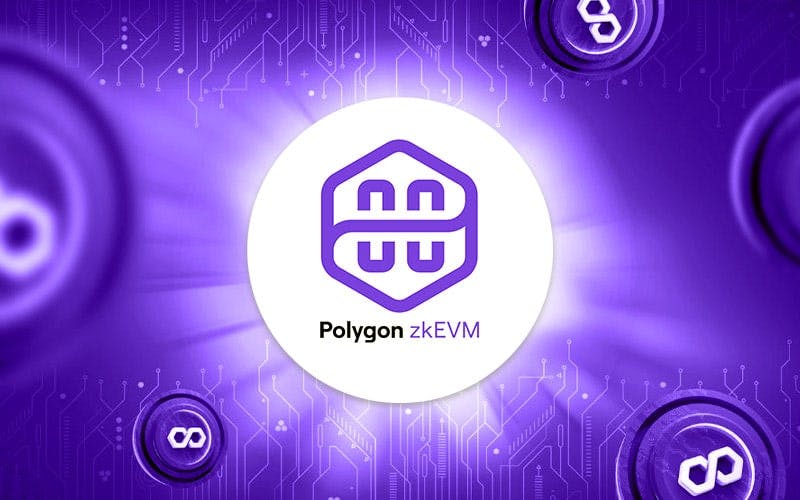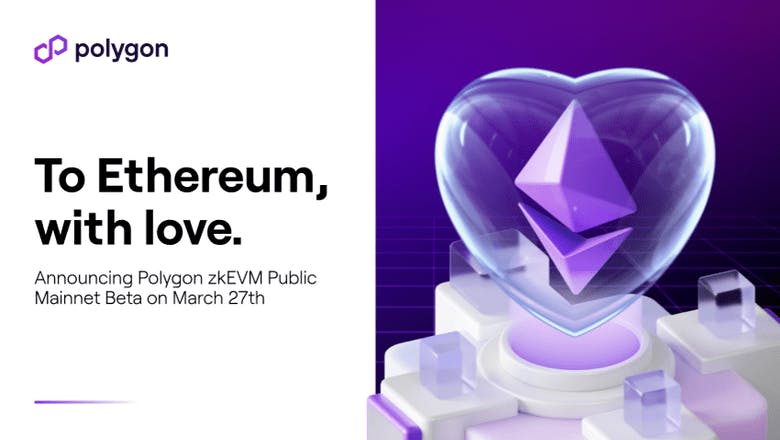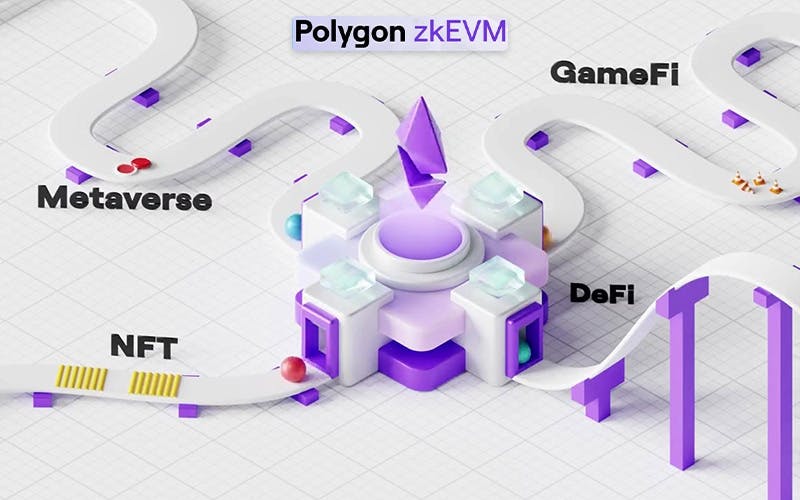Polygon zkEVM and the Blockchain Revolution
Read how zkEVM technology will boom blockchain adoption
Polygon is a popular scaling solution for Ethereum, known for its high speed and low transaction fees. Recently, the platform introduced a new technology called zkEVM, which promises to bring even greater efficiency to the network. In this blog post, we'll explore what Polygon zkEVM is, how it works, and what benefits it offers.
What is Polygon zkEVM?

zkEVM stands for Zero Knowledge Ethereum Virtual Machine. Essentially, it's a way of running Ethereum smart contracts off-chain, while still maintaining the same level of security and trustlessness as on-chain execution. This is made possible through the use of zero knowledge proofs, which allow for secure computation without revealing any underlying data.
How does it work?
The basic idea behind zkEVM is to take smart contracts that would normally be executed on the Ethereum mainnet and instead run them on a sidechain or layer 2 network. This sidechain is connected to the mainnet, allowing for secure communication and interoperability between the two. However, instead of executing the smart contract directly on the sidechain, zkEVM uses zero knowledge proofs to verify the correctness of the computation, without revealing any of the inputs or outputs.
What are the benefits of Polygon zkEVM?

The most obvious benefit of zkEVM is that it can significantly improve the scalability of the Ethereum network. By moving smart contract execution off-chain, zkEVM reduces the burden on the mainnet, allowing for faster and cheaper transactions. This is particularly important as Ethereum continues to grow in popularity and usage.
Another benefit of zkEVM is increased privacy. Because zero knowledge proofs allow for computation without revealing any underlying data, users can enjoy a greater degree of confidentiality when interacting with smart contracts. This could be particularly important in industries such as finance or healthcare, where sensitive information is often involved.
How zkEVM can boost Polygon Adoption

Scalability: One of the main challenges facing Ethereum is its limited scalability. As more users join the network, transaction fees and wait times increase, making it less appealing for use cases that require fast and cheap transactions. By using zkEVM, Polygon can significantly improve the scalability of the network, making it more accessible and appealing to a wider range of users.
Reduced Gas Fees: Gas fees are the bane of many Ethereum users, especially those who want to make small transactions. The high cost of gas fees can make it prohibitively expensive for some users to interact with the network. By moving smart contract execution off-chain, zkEVM reduces the burden on the mainnet, allowing for lower gas fees and making it more accessible to users.
Interoperability: One of the key benefits of the Polygon network is its interoperability with other blockchains and networks. With zkEVM, Polygon can continue to offer interoperability while also increasing the speed and efficiency of transactions between different networks. This could make Polygon an attractive option for developers and businesses looking to build cross-chain applications and services.
Increased Privacy: Privacy is becoming an increasingly important concern for users of blockchain technology, especially as more sensitive data is being stored and processed on these networks. With zkEVM, Polygon can offer increased privacy and confidentiality for users interacting with smart contracts, making it an appealing option for businesses and organizations that deal with sensitive information.
Easier Development: The adoption of zkEVM could make it easier for developers to build applications and services on the Polygon network. By reducing the complexity of smart contract development and deployment, developers can focus on building the features and functionality that users need, rather than worrying about the technical details of how the contract is executed.
Conclusion
In conclusion, the introduction of zkEVM has the potential to significantly boost the adoption of the Polygon network globally. By improving scalability, reducing gas fees, increasing interoperability, offering increased privacy, and making development easier, Polygon is positioning itself as a strong competitor in the blockchain space. As more developers and businesses discover the benefits of the Polygon network and its zkEVM technology, we can expect to see increased adoption and usage of the network in the coming years.

